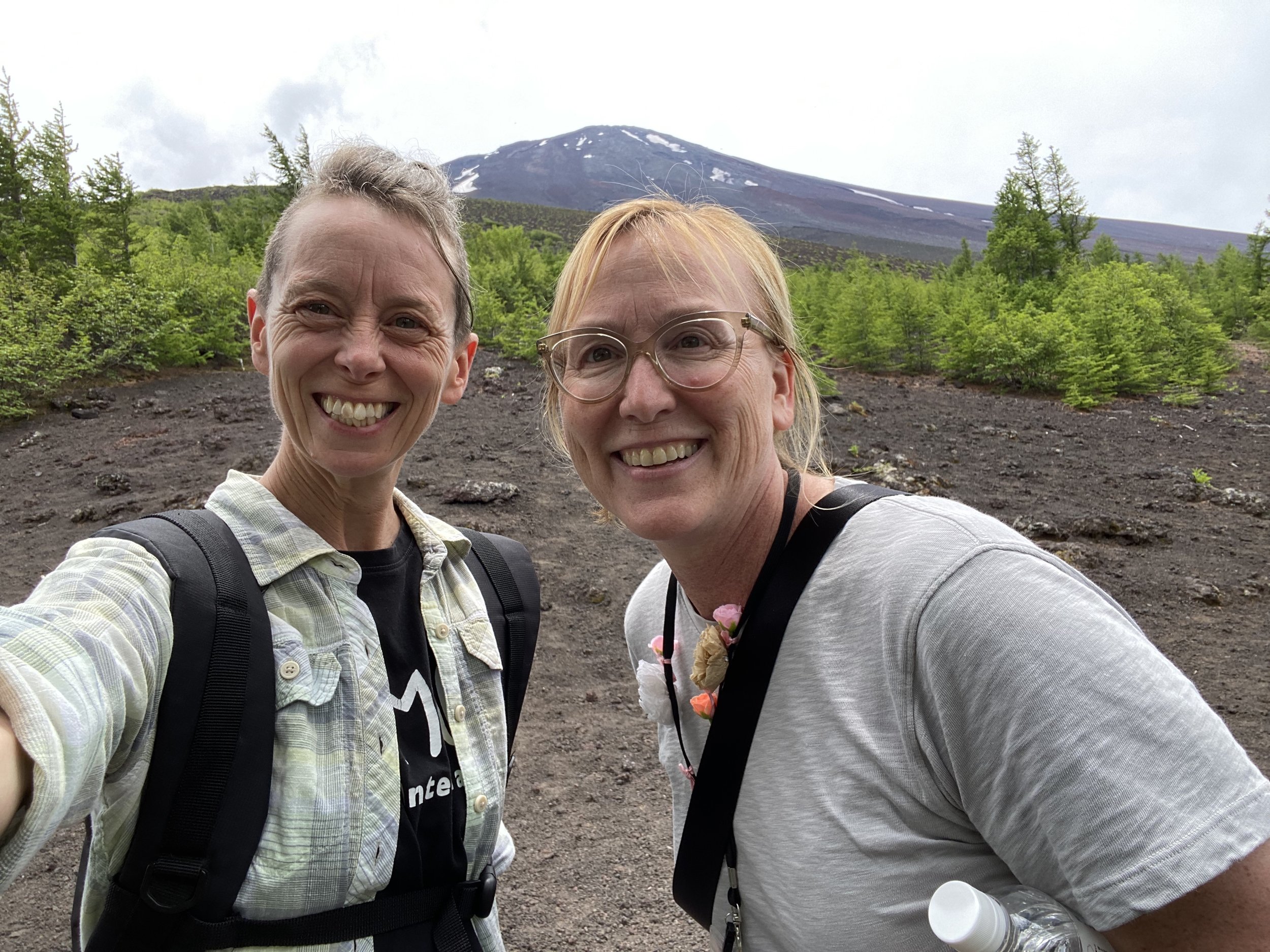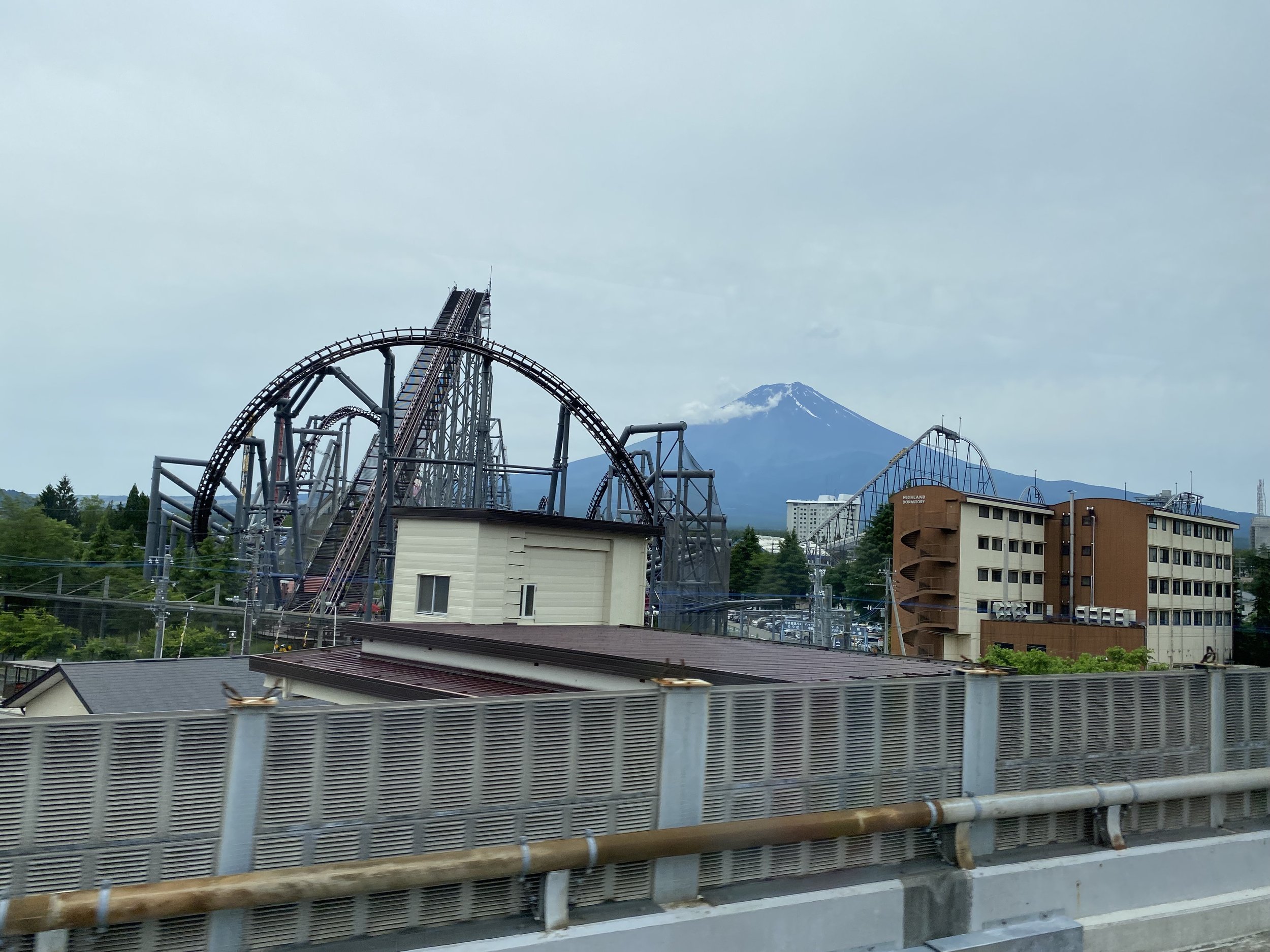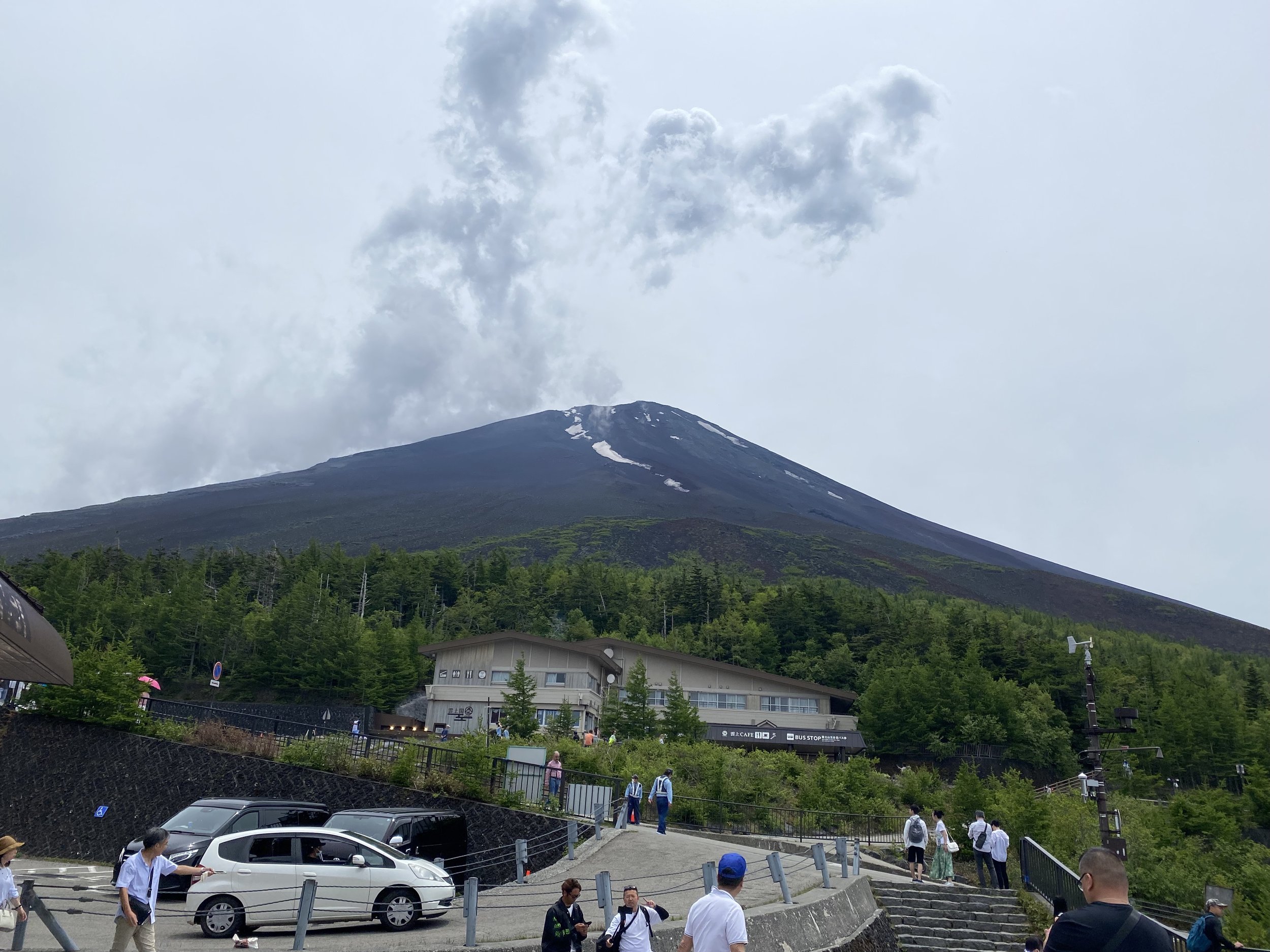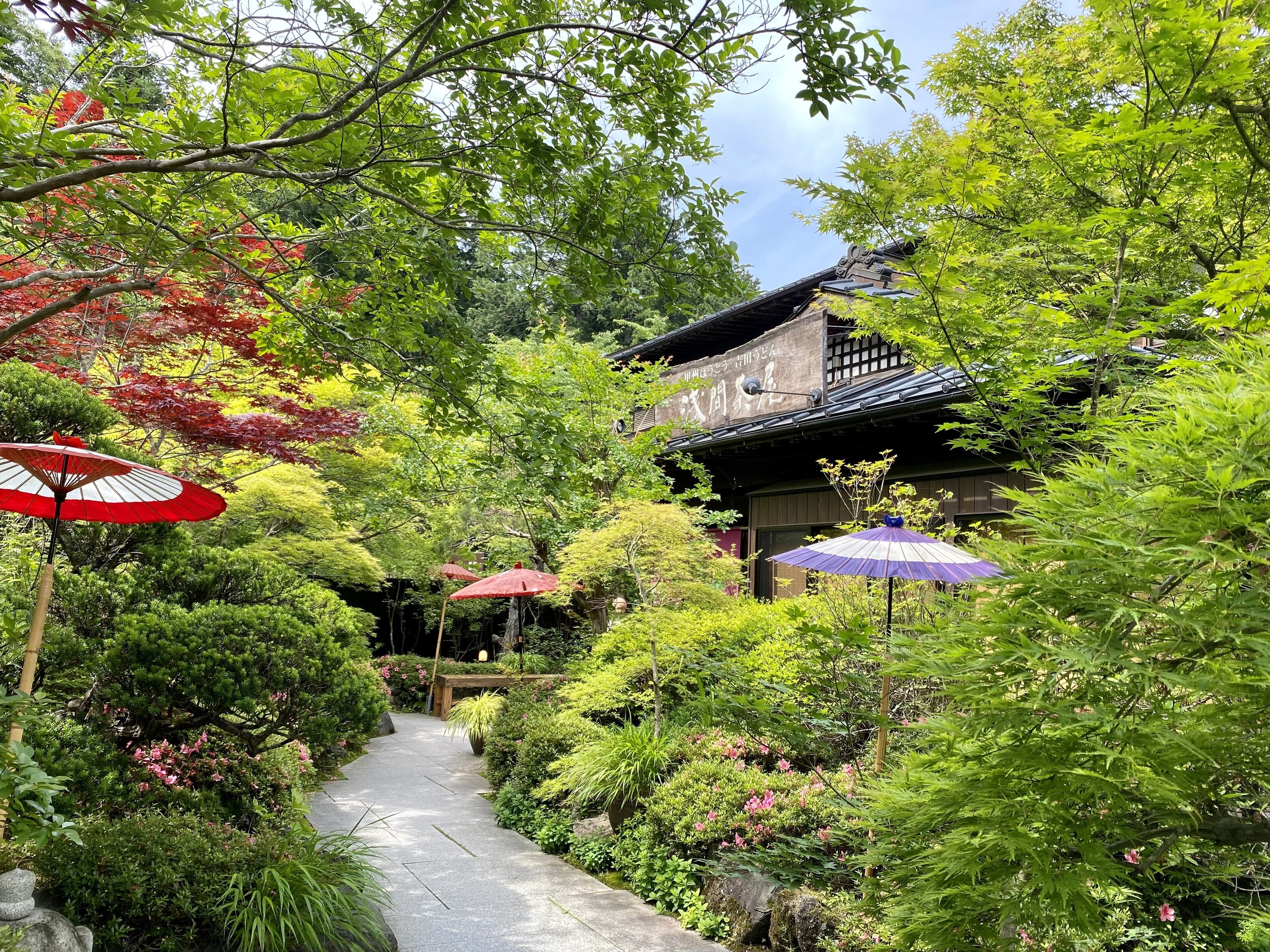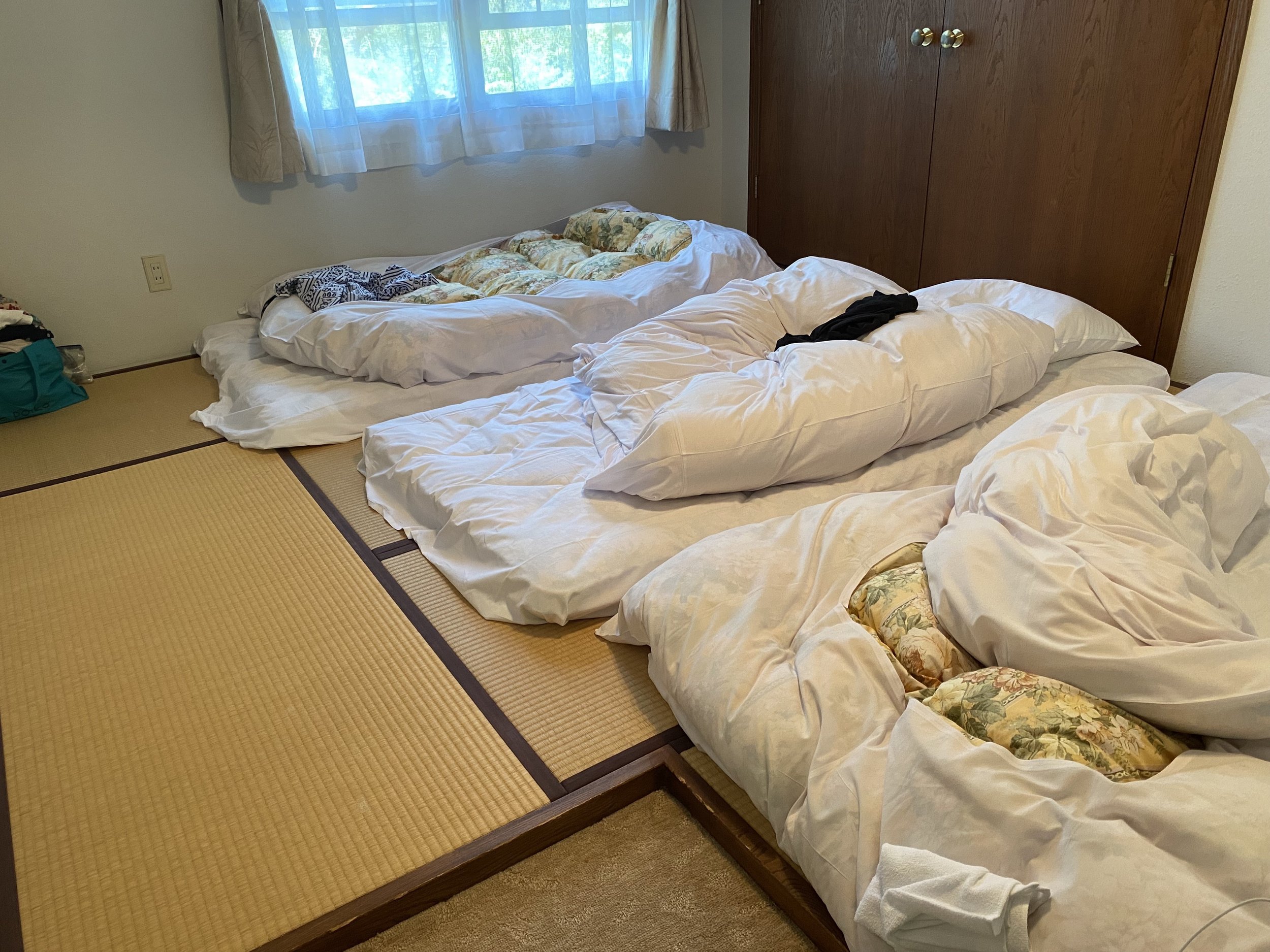June 18: Travel through Mt. Fuji en route to Green Village
June 18: Reflections on Shame
Box of chocolates with a tall dark brown figure with eyes and a red tongue sticking out, shedding lighter brown thick skin with eye and tongue holes that has fallen over to make an upside down J shape.
Familiar rhythm
I am
sickened by shame
flush of hot tears brimming
slap unspoken expectations
foreign
Shame is a bad motivational tool. Or perhaps it is a good motivational tool but a bad tool for building healthy people. Over the past week, I have watched multiple Japanese students become nearly incapable of functioning due to what appears to be shame. Of course, this could be my foreign interpretation shaped by US discourse promulgating the idea that the Japanese feel shame intensely over small things.
In the students I have witnessed, they have broken into tears after what I understand from the outside to be small infractions. On the first occasion, one of the Technos students called me by my full name when they were splitting us into groups. Although I would prefer to be called H, I still use my full name professionally and do not consider it a deadname. The student corrected herself and apologized immediately in front of the full group. I thought no more of it. Later that day when we were in a session together, she came over and burst into tears and apologized nearly a dozen more times. I tried to tell her that she was doing better than me - as I am still struggling to learn names and simple phrases in Japanese. But this was not enough to allay her distress.
I have also repeatedly felt my own shame during this trip - often in small ways, such as when I continue to mispronounce the simplest greetings despite constant referral to my cheat sheet. And I have shared the Technos student’s shame of forgetting the names of my hosts - people who have worked so hard to create a meaningful event for us and who deserve my full recognition. Shame when I walk too far into the center of the sidewalk and cause a cyclist to have to slow or get off their bike. Shame at not knowing the proper greeting or how to eat food that is generously placed before me. Shame for the fact that my disability makes it hard for me to follow the few standards or norms I have been able to learn during my stay in Japan. Shame at wandering into a bathroom for men. Shame that I disrupt norms that I think are bullshit in the first place.
This is not a new feeling. And it is not limited to my experience in Japan. And I’m pretty sure that what I’m about to type is not an especially new observation for me but it is top of mind hot on the heels of a lunch in which I was served a variety of things that I am unsure of the “correct” way to eat them and after which I wandered into the wrong bathroom.
An attempt to avoid shame can certainly motivate someone to learn, as is clear from a conversation I had with a Technos student leader who reports needing to study more English because they don’t want to get the grammar wrong since their teacher has reinforced how important and challenging English grammar is.
Yet when I sit with my own fear of shame,I recognize it to be a largely limiting emotion. It arises when i am most conscious of the way I do not fit in with others - be it because I don’t know the customs of a community in which I am moving or because I am forced to navigate customs of a community to which I should belong.
Tonight I will head to an onsen. While the people I am around are largely talking with tremendous excitement about the experience, my feelings of excitement for the release from physical stress are mixed with trepidation. I know we will be split by gender. I considered opting out altogether but I want the experience of luxuriating in hot springs, too. So I will go with the women. This is for the comfort of all around me…and in some ways for me. I have been socialized to gender segregate in women’s spaces and so they feel most comfortable to me. Raised in a different world in which we weren’t so obsessed with policing gender and bodies, perhaps I would feel differently. Perhaps others would, too.
In this way, shame is a powerful motivator for people to disengage, to self-isolate, to withdraw…a means of policing people and removing those we don’t want to deal with in a way that places the blame on them and not on us.
H, wearing a backpack, walks on a pine-needle blanketed path next to a series of stones through splndly pine trees and green shrubbery
Before the onsen, as we drove out to the resort operated by the Tanaka Foundation where we are generously being hosted for the next few days, we stopped for an hour at Mt. Fuji, which was an exquisite experience. I wish I’d had more time to lose myself in the quiet of the natural world. We were given an hour and I headed as quickly as I could to a trail heading up along with another colleague who was interested in going on a walk. We didn’t make it far, but that wasn’t the point. The point was to walk on the volcanic rock, to smell the pine, to listen to the birds and frogs with their evocative and rhythmic songs, and to catch the occasional glimpse of that powerful slumbering volcanic mountain. As I walked, I couldn’t help wondering how much longer the mountain will sleep. It’s been 300 years and the world is heating up.
Other experiences / reflections:
Eating a tiny little fish whole (not a favorite)
Eating a kind of long wide noodle (looked like a very long egg noodle) made in the village we stopped in for lunch. Unfortunately, I did not write the name down. It was really delightful, though a bit hard to handle in the transfer from large to small bowls!
Learning the reasons behind not leaving chopsticks inserted straight up in rice between bites (part of a funeral rite), not passing food directly from chopsticks to chopsticks (this is how people pass bones during funeral rites), and how to properly wear a yukata (right side closed underneath the left side - to do it the opposite way is to be wearing your funeral garment) though I was incapable of mastering tying the obi as instructed.
Relaxing in a private onsen! Turns out the American House in which the faculty in the program are being housed during the retreat has two private one-person onsens. The ability to go soak by myself without all of the aforementioned anxiety was welcome, though there was a bit of anxiety preceding it. Our accommodations were split by gender since the house is built to have two entirely split sleeping quarters and shared rooms. I had been asked before Technos began if I was comfortable sharing a room with one of the women on the trip, and I said yes. I didn’t realize that the facilities would also be split by gender, or that when we were given a tour of the space, we would be told that one of the single-person bathrooms was for men and one for women, even though the doors locked and the facilities (both baths and toilets) were solo experiences. I do not understand the obsession - in the US as well as in Japan - with gendering bathrooms that can only be used by one person at a time. I will confess that this practice really pisses me off because it is seemingly has no purpose beyond policing people. I was grateful to discover that the other faculty in the program had no hang ups about making the facilities located in our shared spaces open to whomever needed them. I wound up using the smaller of the two private onsens and felt like I might melt into a puddle after soaking for 10-15 minutes.
Sleeping traditional Japanese style: tatami mat, futon, duvet in a small shared room with two other faculty. I loved sleeping this way - I’m a big fan of firm beds and found this sleeping arrangement super comfortable.
A volcanic rock trail with stone path amidst green shrubbery.. I recommend listening with sound on to hear some of the sounds of Fuji.


